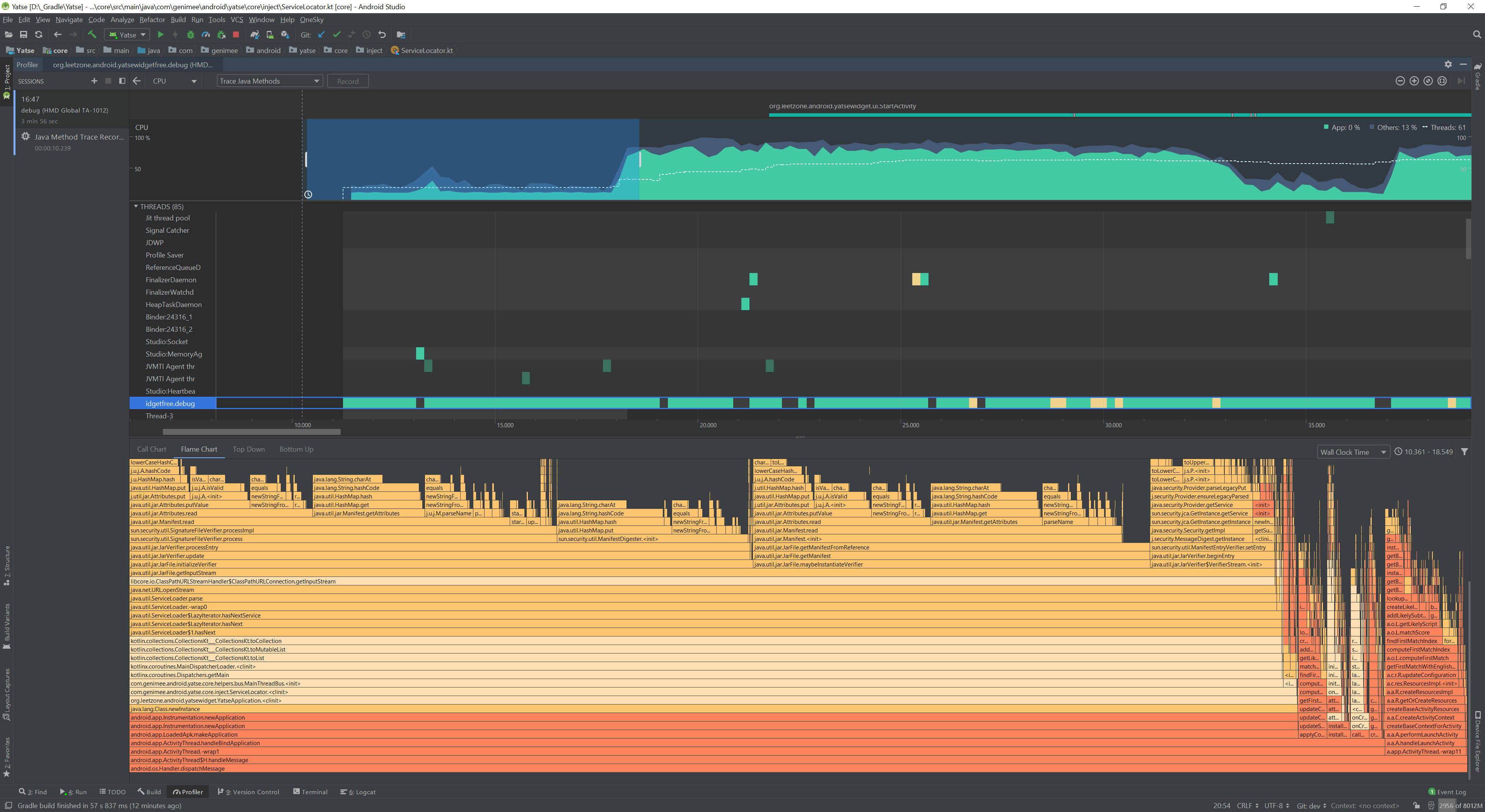kotlinx.coroutines
Library support for Kotlin coroutines with multiplatform support. This is a companion version for the Kotlin 1.6.0 release.
suspend fun main() = coroutineScope {
launch {
delay(1000)
println("Kotlin Coroutines World!")
}
println("Hello")
}
Play with coroutines online here
Modules
- core — common coroutines across all platforms:
- launch and async coroutine builders returning Job and Deferred light-weight futures with cancellation support;
- Dispatchers object with Main dispatcher for Android/Swing/JavaFx, and Default dispatcher for background coroutines;
- delay and yield top-level suspending functions;
- Flow — cold asynchronous stream with flow builder and comprehensive operator set (filter, map, etc);
- Channel, Mutex, and Semaphore communication and synchronization primitives;
- coroutineScope, supervisorScope, withContext, and withTimeout scope builders;
- MainScope() for Android and UI applications;
- SupervisorJob() and CoroutineExceptionHandler for supervision of coroutines hierarchies;
- select expression support and more.
- core/jvm — additional core features available on Kotlin/JVM:
- Dispatchers.IO dispatcher for blocking coroutines;
- Executor.asCoroutineDispatcher extension, custom thread pools, and more.
- core/js — additional core features available on Kotlin/JS:
- Integration with
Promisevia Promise.await and promise builder; - Integration with
Windowvia Window.asCoroutineDispatcher, etc.
- Integration with
- test — test utilities for coroutines:
- Dispatchers.setMain to override Dispatchers.Main in tests;
- TestCoroutineScope to test suspending functions and coroutines.
- debug — debug utilities for coroutines:
- DebugProbes API to probe, keep track of, print and dump active coroutines;
- CoroutinesTimeout test rule to automatically dump coroutines on test timeout.
- Automatic integration with BlockHound.
- reactive — modules that provide builders and iteration support for various reactive streams libraries:
- Reactive Streams (Publisher.collect, Publisher.awaitSingle, kotlinx.coroutines.reactive.publish, etc),
- Flow (JDK 9) (the same interface as for Reactive Streams),
- RxJava 2.x (rxFlowable, rxSingle, etc), and
- RxJava 3.x (rxFlowable, rxSingle, etc), and
- Project Reactor (flux, mono, etc).
- ui — modules that provide coroutine dispatchers for various single-threaded UI libraries:
- Android, JavaFX, and Swing.
- integration — modules that provide integration with various asynchronous callback- and future-based libraries:
- JDK8 CompletionStage.await, Guava ListenableFuture.await, and Google Play Services Task.await;
- SLF4J MDC integration via MDCContext.
Documentation
- Presentations and videos:
- Introduction to Coroutines (Roman Elizarov at KotlinConf 2017, slides)
- Deep dive into Coroutines (Roman Elizarov at KotlinConf 2017, slides)
- Kotlin Coroutines in Practice (Roman Elizarov at KotlinConf 2018, slides)
- Guides and manuals:
- Compatibility policy and experimental annotations
- Change log for kotlinx.coroutines
- Coroutines design document (KEEP)
- Full kotlinx.coroutines API reference
Using in your projects
Maven
Add dependencies (you can also add other modules that you need):
<dependency>
<groupId>org.jetbrains.kotlinx</groupId>
<artifactId>kotlinx-coroutines-core</artifactId>
<version>1.6.0-RC3</version>
</dependency>
And make sure that you use the latest Kotlin version:
<properties>
<kotlin.version>1.6.0</kotlin.version>
</properties>
Gradle
Add dependencies (you can also add other modules that you need):
dependencies {
implementation 'org.jetbrains.kotlinx:kotlinx-coroutines-core:1.6.0-RC3'
}
And make sure that you use the latest Kotlin version:
buildscript {
ext.kotlin_version = '1.6.0'
}
Make sure that you have mavenCentral() in the list of repositories:
repository {
mavenCentral()
}
Gradle Kotlin DSL
Add dependencies (you can also add other modules that you need):
dependencies {
implementation("org.jetbrains.kotlinx:kotlinx-coroutines-core:1.6.0-RC3")
}
And make sure that you use the latest Kotlin version:
plugins {
kotlin("jvm") version "1.5.30"
}
Make sure that you have mavenCentral() in the list of repositories.
Android
Add kotlinx-coroutines-android module as a dependency when using kotlinx.coroutines on Android:
implementation 'org.jetbrains.kotlinx:kotlinx-coroutines-android:1.6.0-RC3'
This gives you access to the Android Dispatchers.Main coroutine dispatcher and also makes sure that in case of a crashed coroutine with an unhandled exception that this exception is logged before crashing the Android application, similarly to the way uncaught exceptions in threads are handled by the Android runtime.
R8 and ProGuard
R8 and ProGuard rules are bundled into the kotlinx-coroutines-android module. For more details see "Optimization" section for Android.
Avoiding including the debug infrastructure in the resulting APK
The kotlinx-coroutines-core artifact contains a resource file that is not required for the coroutines to operate normally and is only used by the debugger. To exclude it at no loss of functionality, add the following snippet to the android block in your Gradle file for the application subproject:
packagingOptions {
resources.excludes += "DebugProbesKt.bin"
}
Multiplatform
Core modules of kotlinx.coroutines are also available for Kotlin/JS and Kotlin/Native.
In common code that should get compiled for different platforms, you can add a dependency to kotlinx-coroutines-core right to the commonMain source set:
commonMain {
dependencies {
implementation("org.jetbrains.kotlinx:kotlinx-coroutines-core:1.6.0-RC3")
}
}
No more additional dependencies are needed, platform-specific artifacts will be resolved automatically via Gradle metadata available since Gradle 5.3.
Platform-specific dependencies are recommended to be used only for non-multiplatform projects that are compiled only for target platform.
JS
Kotlin/JS version of kotlinx.coroutines is published as kotlinx-coroutines-core-js (follow the link to get the dependency declaration snippet) and as kotlinx-coroutines-core NPM package.
Native
Kotlin/Native version of kotlinx.coroutines is published as kotlinx-coroutines-core-$platform where $platform is the target Kotlin/Native platform. List of currently supported targets.
Only single-threaded code (JS-style) on Kotlin/Native is supported in stable versions. Additionally, a special -native-mt version is released on a regular basis, for the state of multi-threaded coroutines support please follow the corresponding issue for the additional details.
Since Kotlin/Native does not generally provide binary compatibility between versions, you should use the same version of the Kotlin/Native compiler as was used to build kotlinx.coroutines.




